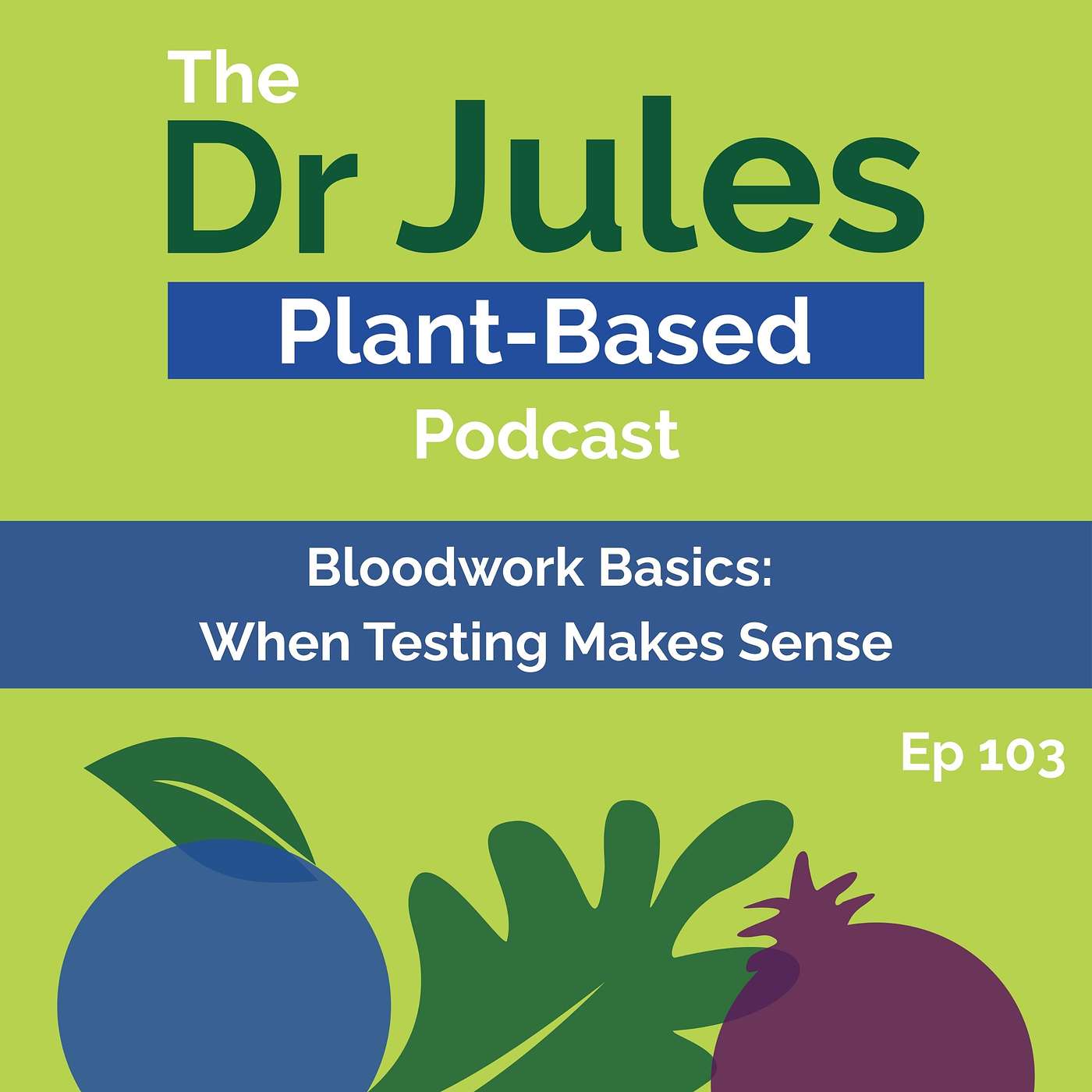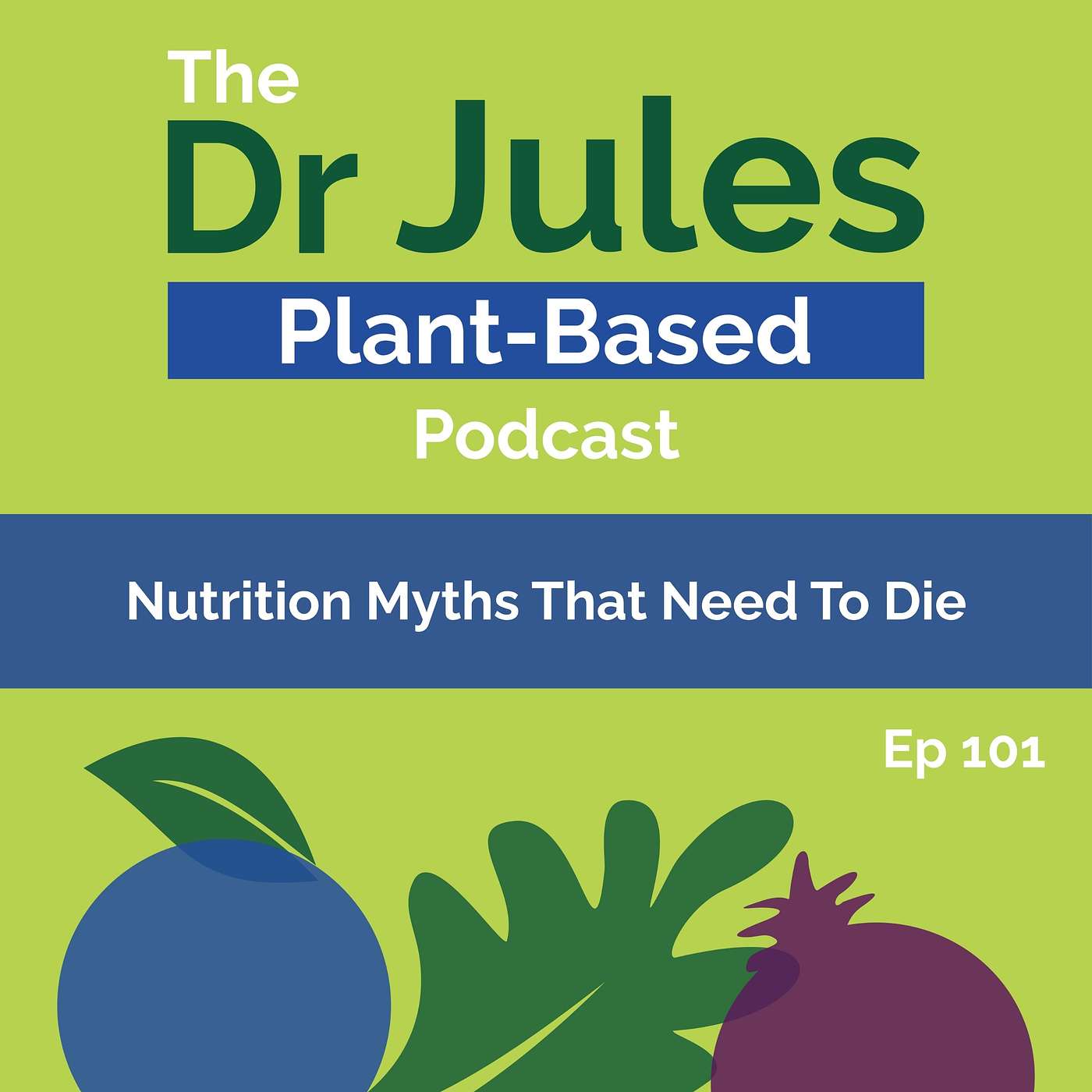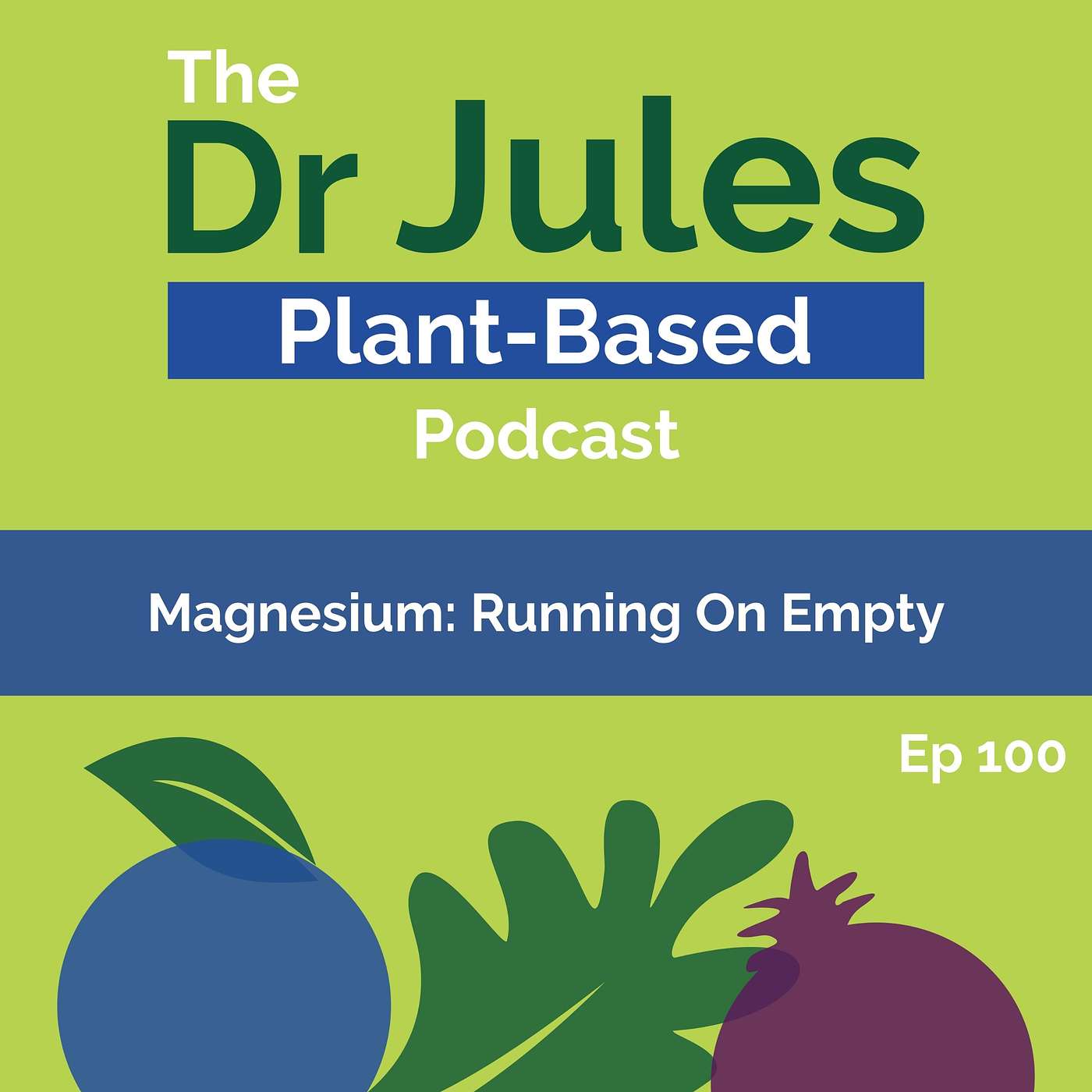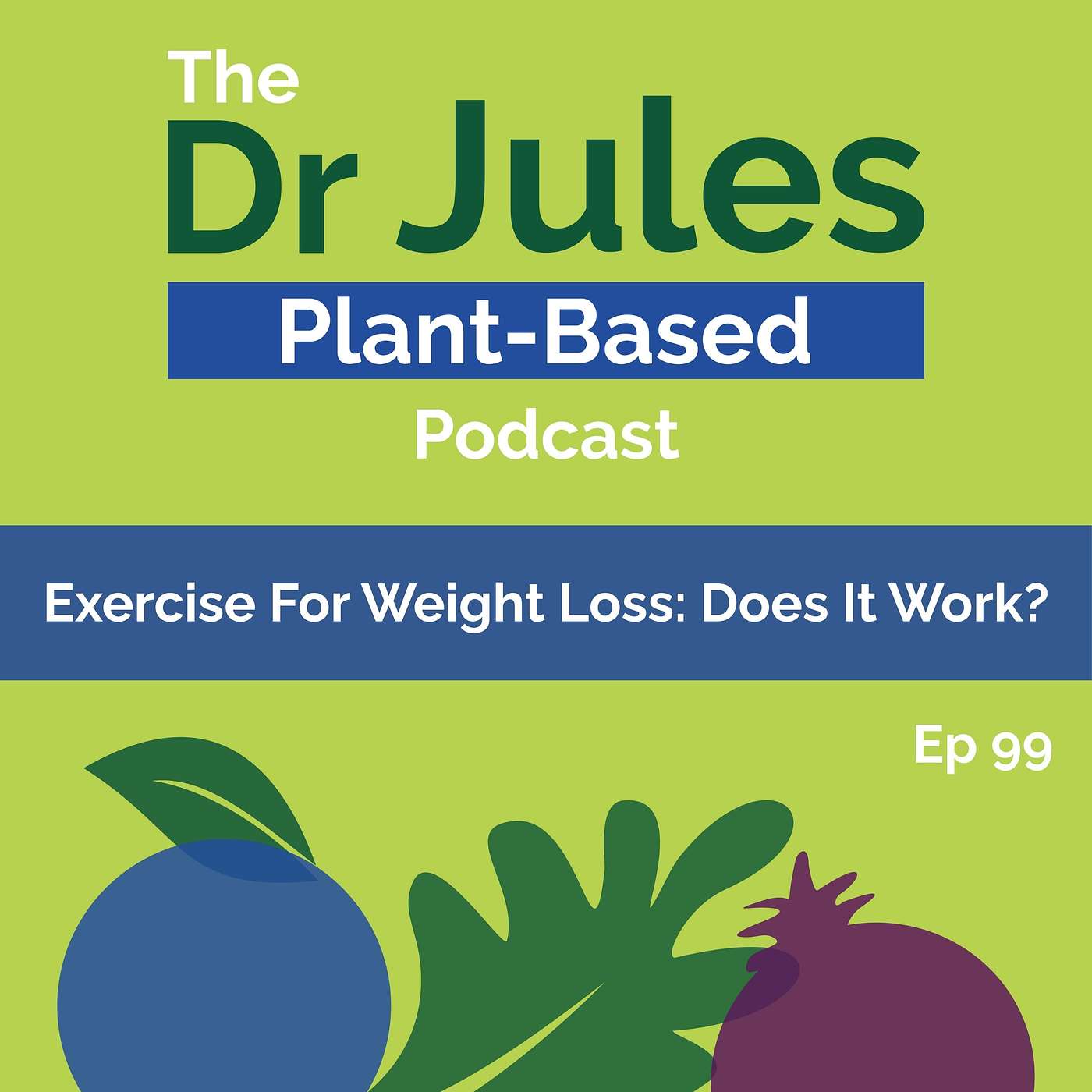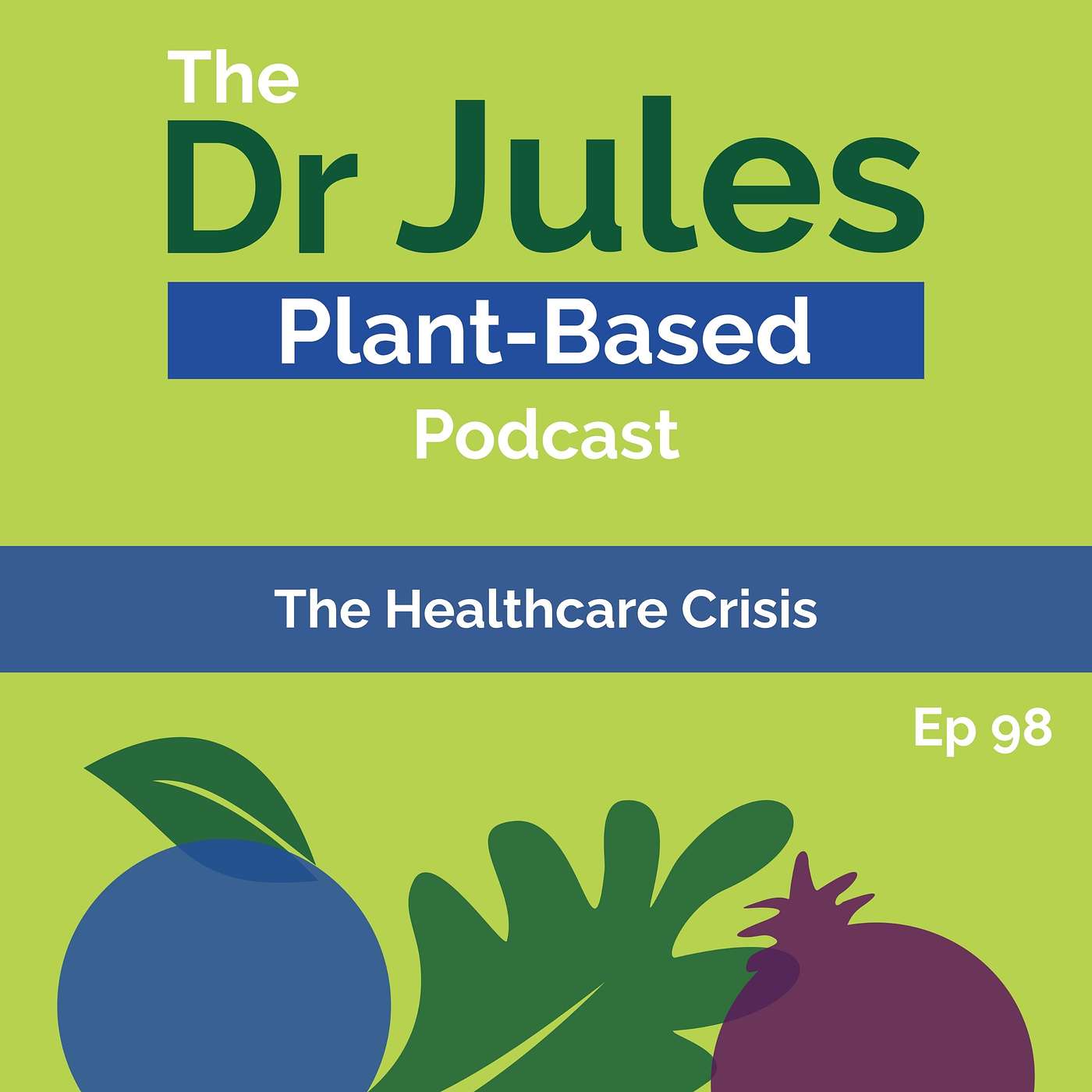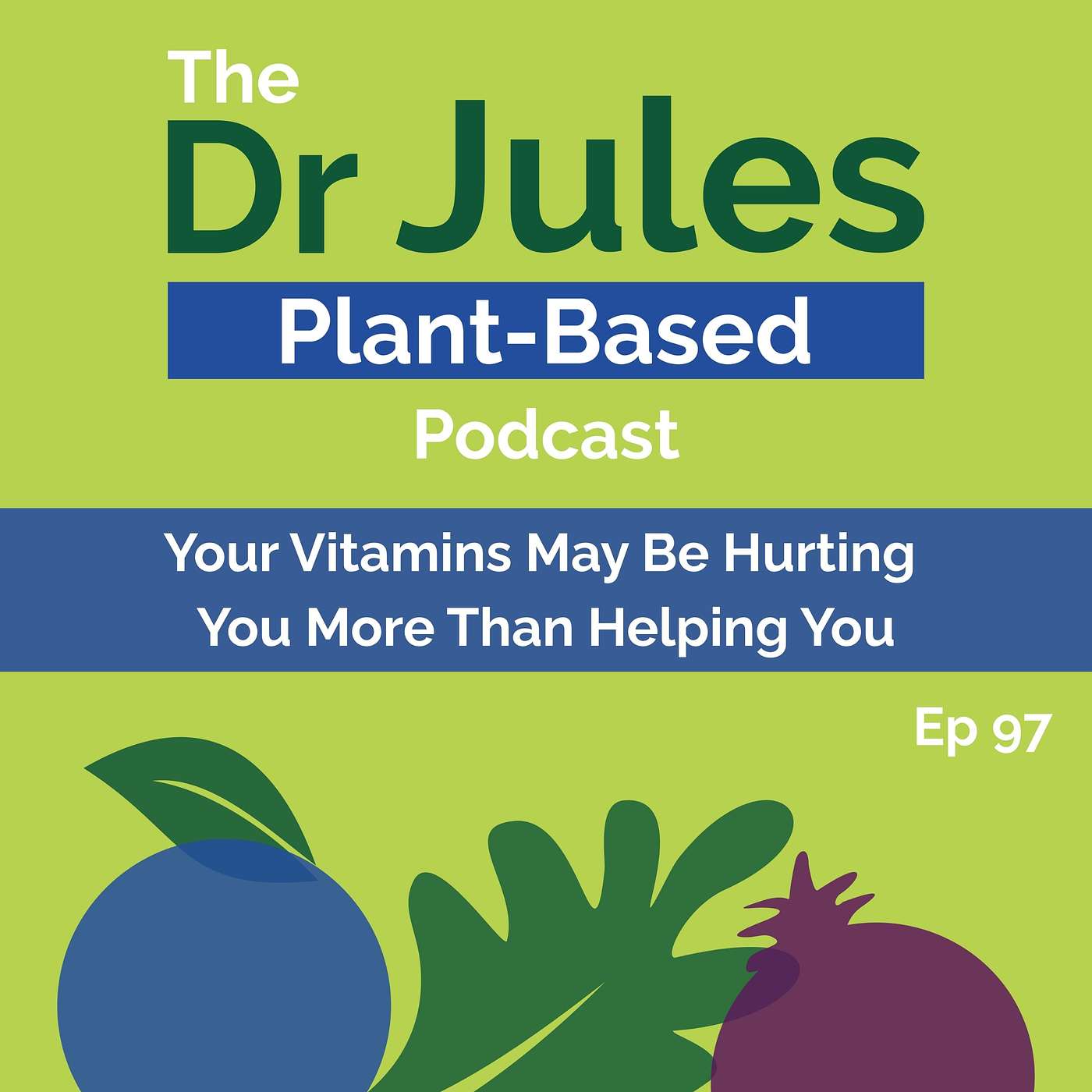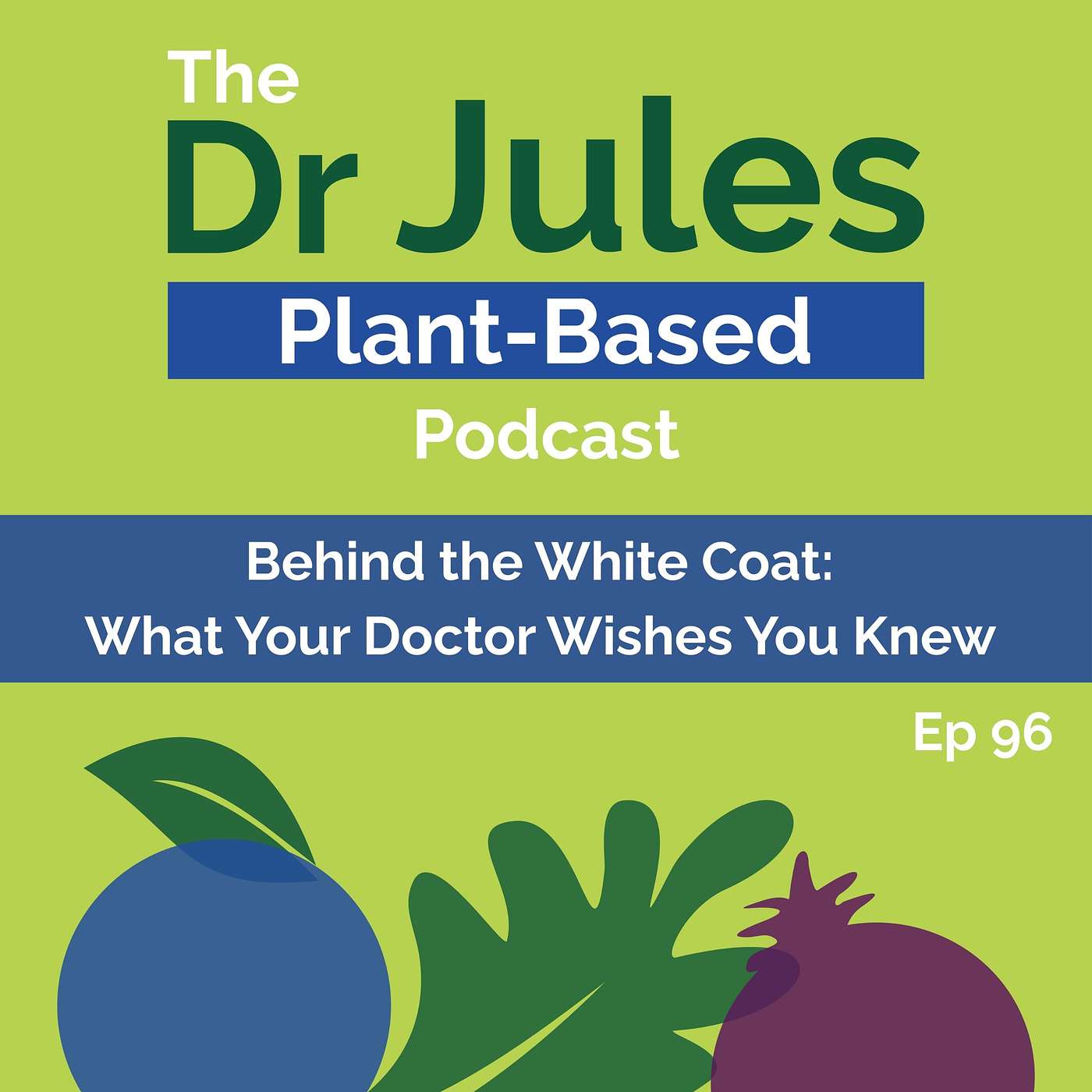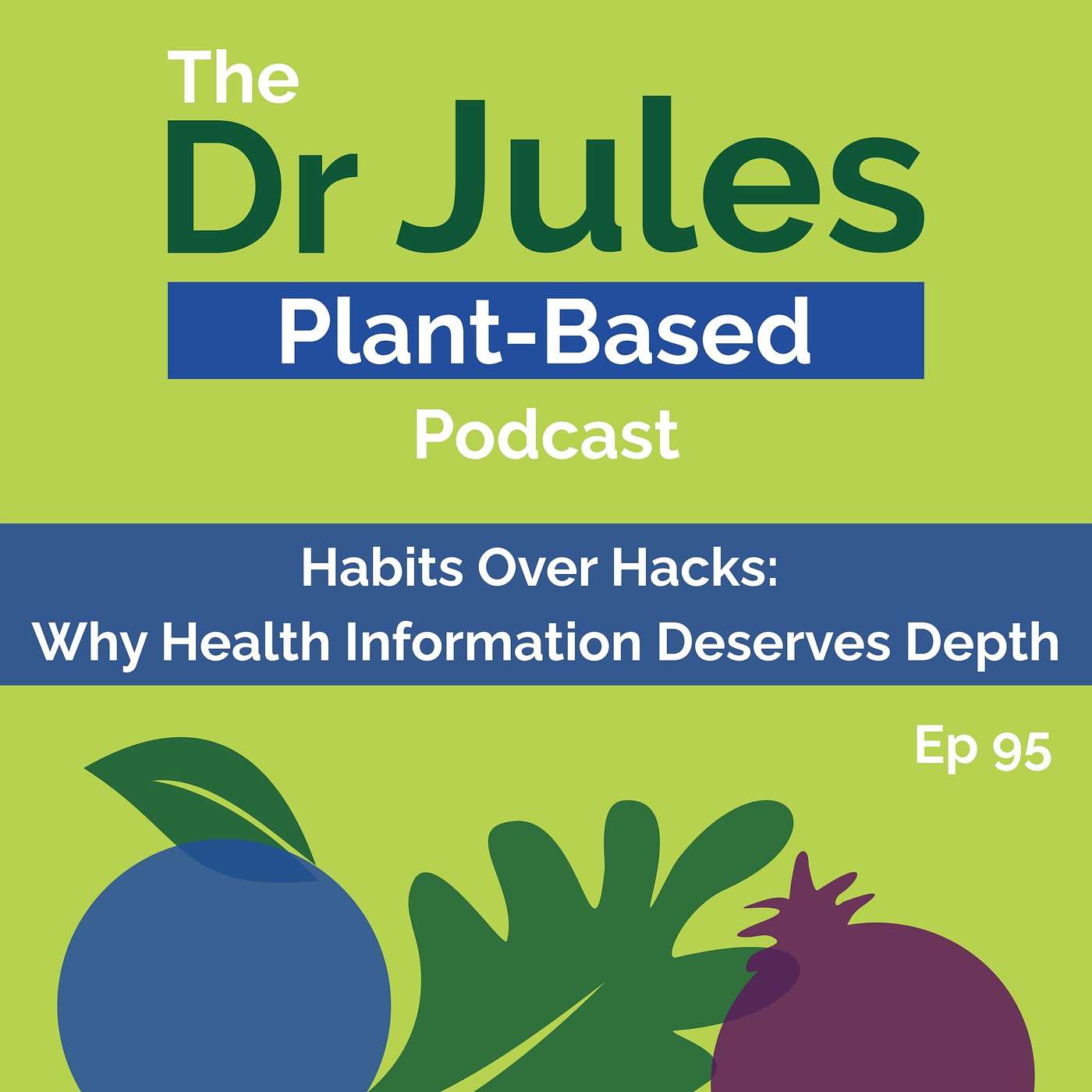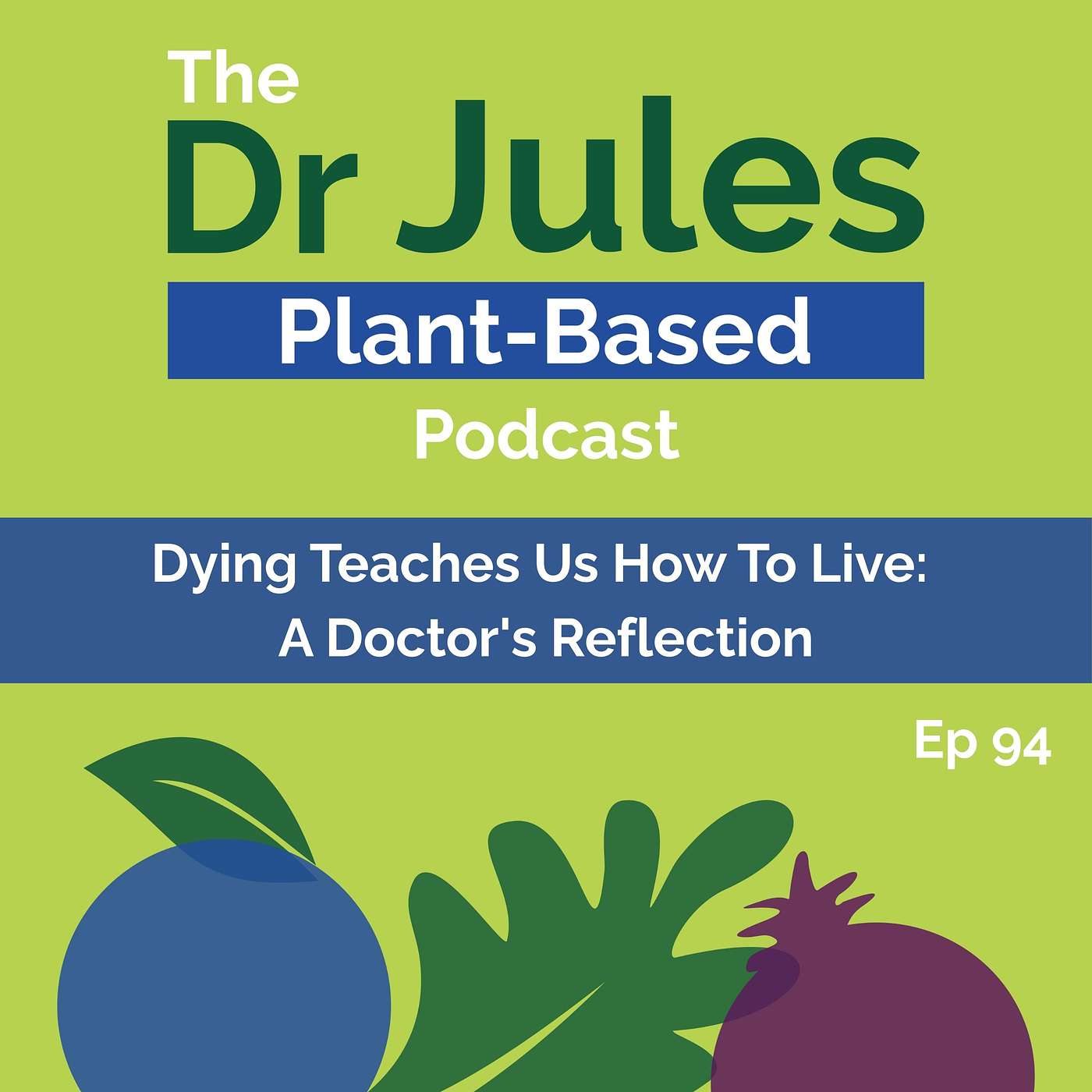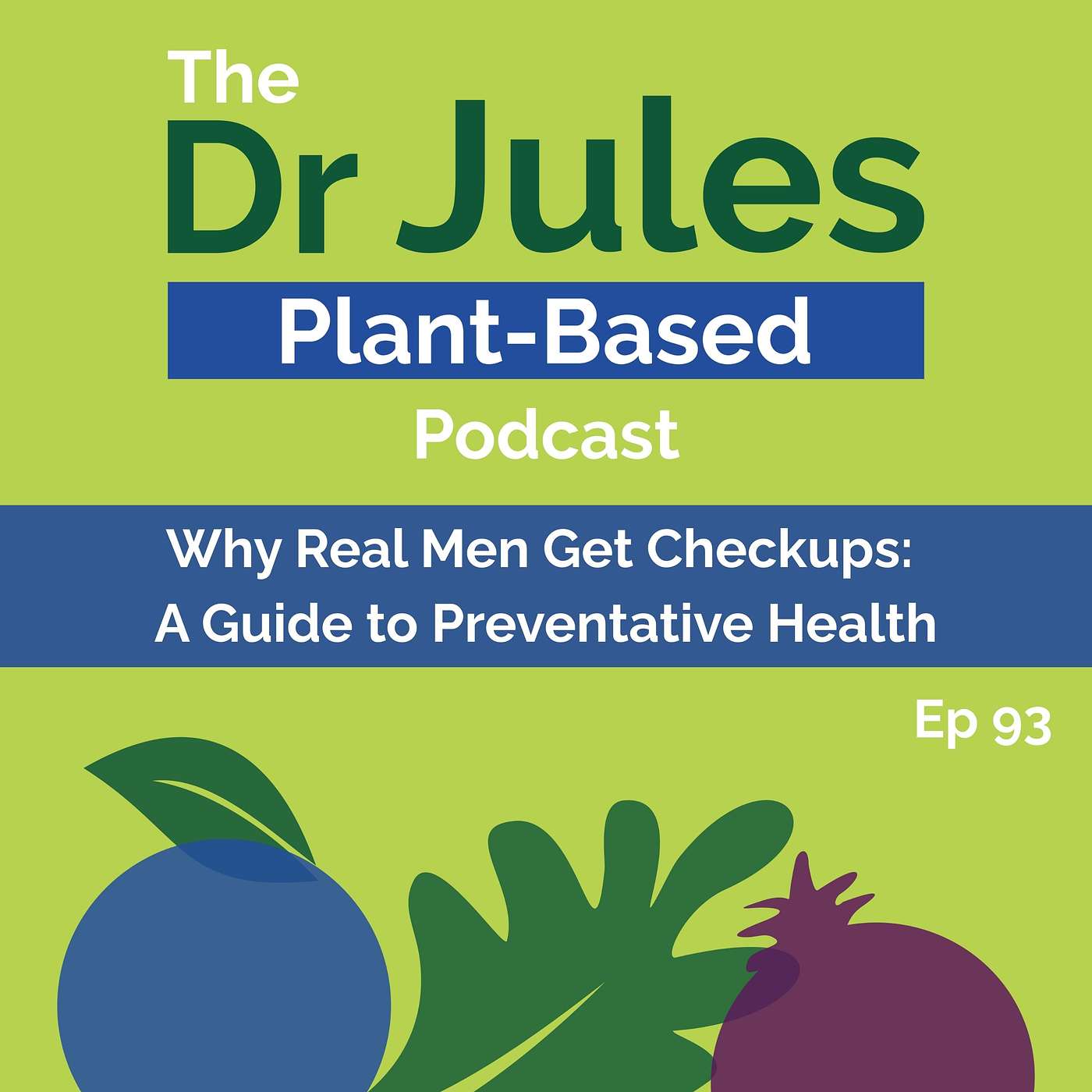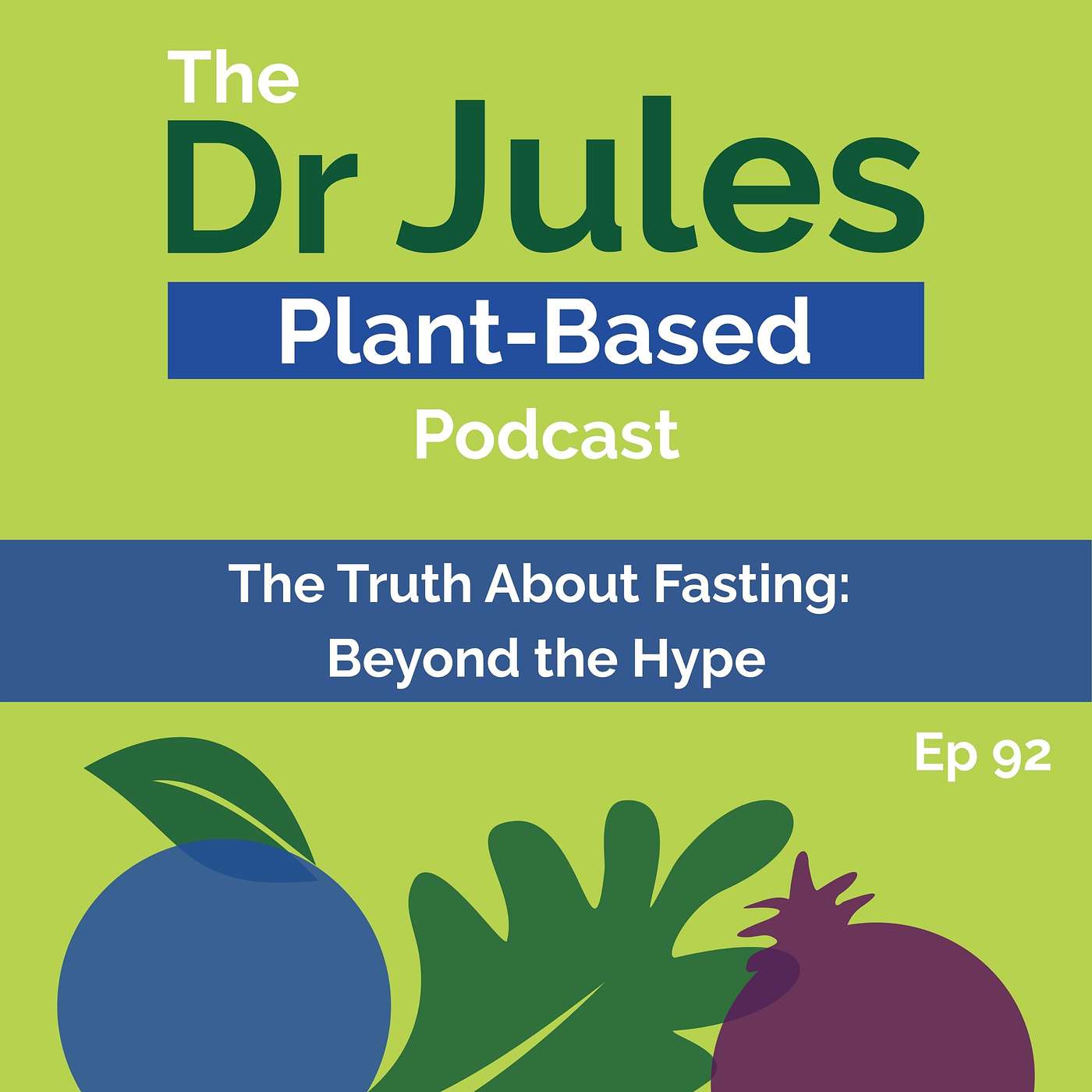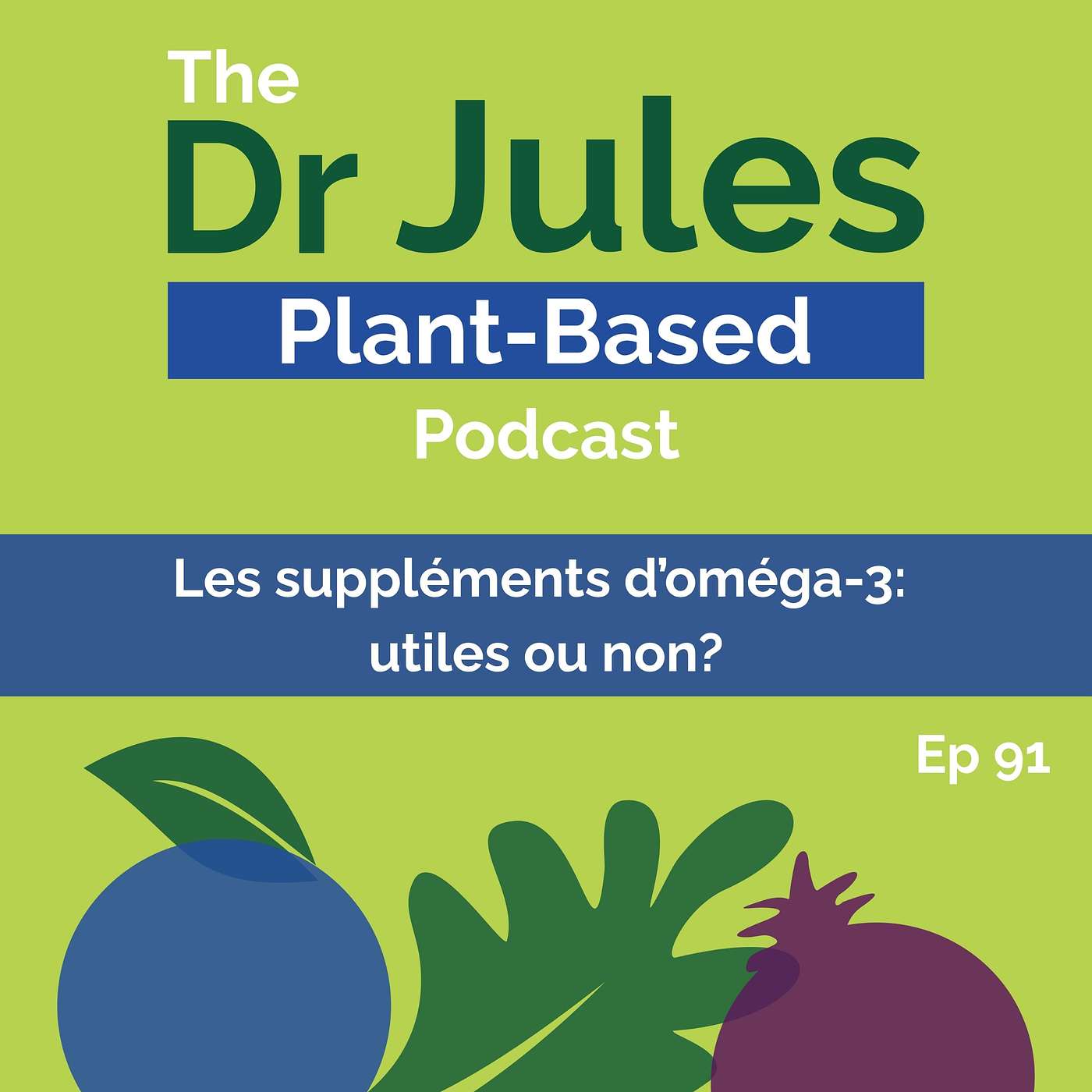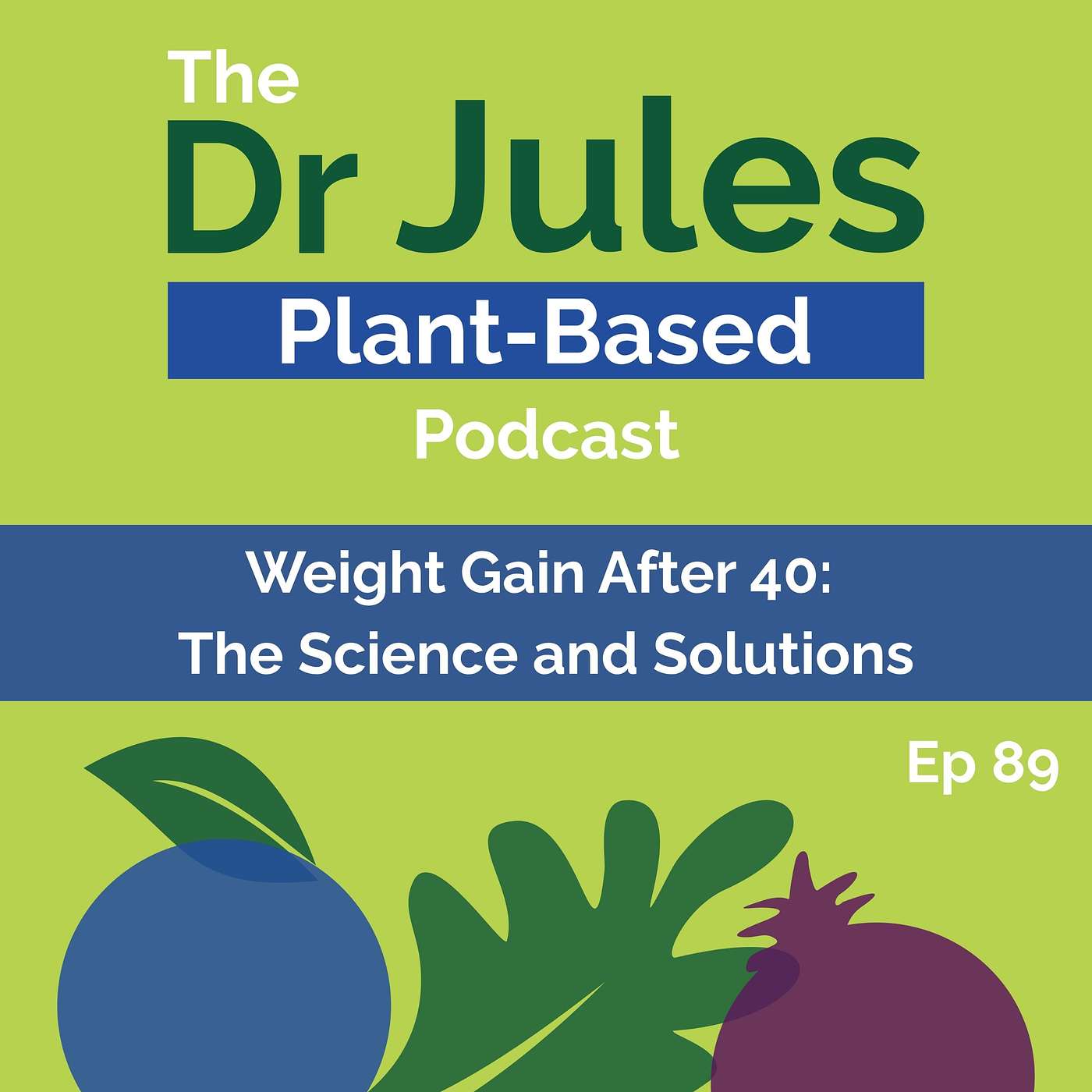Discover The Dr. Jules Plant-Based Podcast
The Dr. Jules Plant-Based Podcast

The Dr. Jules Plant-Based Podcast
Author: Dr. Jules Cormier (MD)
Subscribed: 135Played: 1,402Subscribe
Share
© 2025 The Dr. Jules Plant-Based Podcast
Description
Hey, I’m Dr. Jules! I’m a medical doctor, teacher, nutritionist, naturopath, plant-based dad and 3X world championships qualified athlete. On this podcast we’ll discuss the latest in evidence-based and plant-based nutrition, including common nutrition myths, FAQs and tips on how to transition towards a healthier dietary pattern and lifestyle that creates little friction with your busy life!
105 Episodes
Reverse
Dr. Jules Cormier was living a medical nightmare. Despite being a practicing physician, he was battling severe angioedema that sent him to the emergency room with life-threatening swelling after simple activities like playing basketball or experiencing temperature changes. Medications barely managed his symptoms, and he lived in constant fear of the next potentially fatal reaction. Everything changed when his infant daughter began experiencing similar inflammatory conditions – blood in her d...
"Should you get routine blood work?" seems like a straightforward question, but the answer lies in understanding how our bodies process nutrients and when testing actually provides meaningful information. Nutrient deficiencies can be surprisingly sneaky, calcium deficiencies might take decades to show up in blood tests while silently damaging bone health, and even B12 deficiencies can remain hidden for 6-12 months before symptoms emerge. For those following or transitioning to plant-ba...
What if a silent thief was stealing your bone strength right now, and you had no idea until it was too late? Osteoporosis affects millions worldwide, yet most people remain completely unaware until a seemingly minor fall results in a life-altering fracture. Think of your bones like a bank account. During your teens and twenties, you make deposits, building peak bone mass by your early thirties. After that, the withdrawals begin. Whether you end up with strong, resilient bones or fragile ones...
Feeling confused about nutrition advice in 2025? You're not alone. Despite our advances in science and technology, most nutrition information remains stuck in the past, leaving people confused and frustrated. In this myth-busting episode, Dr. Jules takes on the most persistent nutrition falsehoods circulating on social media and in everyday conversations. From the pervasive "carbs make you fat" slogan to the obsession with excessive protein intake, we examine why these oversimplified rules a...
Magnesium might be the most underrated nutrient in your body's health arsenal. This powerful mineral acts as the essential backstage crew for over 300 enzyme systems, silently orchestrating everything from stress response and sleep quality to immune function and heart health. Yet astonishingly, about 40% of Canadians are walking around with chronic magnesium deficiency without even knowing it. Why does this matter? When your magnesium tank runs low, the effects ripple throughout your entire ...
Forget everything you think you know about exercise and weight loss. The truth might surprise you—and it's backed by science. Ever found yourself grinding away on the treadmill while the scale refuses to budge? You're not alone. Exercise is often touted as the answer to weight loss, but the research tells a different story. A 400-calorie muffin takes two minutes to eat but 45 minutes of jogging to burn off. Our bodies are even programmed to compensate after workouts by increasing hunger and ...
The healthcare system is cracking under pressure, and it's not just about staffing shortages or budget cuts. Drawing from 19 years of medical practice, I peel back the layers of our current healthcare crisis to reveal what's really breaking the system: an epidemic of preventable lifestyle diseases. Remember when eating an apple instead of a processed granola bar wasn't considered "going on a diet"? Our modern world has engineered unhealthy choices to be the easiest ones, creating a perfect s...
The wellness world has convinced many of us that when it comes to vitamins and supplements, more equals better. This dangerous misconception has real consequences, as I've witnessed firsthand with patients like Samantha, whose well-intentioned supplement routine led to permanent nerve damage. Through Samantha's story, we explore how her daily stack of supplements—a multivitamin, B-complex, energy powder, and relaxation gummies—unknowingly delivered 140mg of vitamin B6 daily, far exceeding th...
What really happens after your doctor closes the exam room door? How do physicians feel when they can't give you the time you deserve? The healthcare system has trained us to focus on symptoms, tests, and diagnoses, but we rarely discuss the human experiences on both sides of medicine. Drawing from nearly two decades in healthcare, I'm pulling back the curtain to reveal what doctors wish every patient understood about their reality. The truth might surprise you: physicians carry your stories...
We're living in a world where depth has become a disadvantage. The infamous "TLDR" (Too Long, Didn't Read) mentality has infiltrated health communication, replacing nuanced discussion with catchy, often misleading soundbites. While scrolling through claims like "carbs are bad" and "seed oils will kill you," we've lost sight of what meaningful health information actually looks like. This episode unpacks how social media algorithms don't just shorten content—they actively filter it, creating d...
Death comes for us all, yet most of us live as though immortal. As a physician who's witnessed countless final moments, I've observed a heartbreaking pattern: people realizing too late that their health was never guaranteed, but rather the culmination of thousands of daily choices. This episode dives deep into what the deceased might tell us if they could speak again. The bedside confessions are startlingly consistent: "I thought I had more time." "I was too proud to change." "I wish I'd sta...
Death doesn't wait for symptoms, and neither should you. This eye-opening episode tackles the critical yet often avoided topic of men's health during Men's Health Month. Did you know men are 24% less likely than women to have seen a doctor in the past year? The statistics are alarming, but there's hope. Whether you identify as male or simply care about the men in your life, this conversation could literally save lives. Dr. Jules dives deep into why men avoid healthcare (hint: it's not lazine...
Fasting has become a health buzzword, but beneath the hype lies a complex metabolic tool with specific benefits and important caveats. In this comprehensive exploration, I break down the science behind different fasting approaches and reveal why not all fasting styles deliver the same results. The episode distinguishes between four major fasting types that are often confused: prolonged fasting (multi-day), intermittent fasting (alternate day or 5:2), time-restricted eating (daily eating wind...
Oméga-3 : faut-il se supplémenter? Certains disent oui. D’autres non. Et plusieurs préfèrent jouer de prudence. Voici mon avis sur un sujet hautement nuancé. Il n’y a pas de réponse simple. Ce n’est ni oui, ni non. Ça dépend de plusieurs facteurs — que je décortique dans cet épisode entièrement dédié aux oméga-3. Va faire un tour sur mon site web pour plein de ressources gratuites sur comment amorcer une transition vers une alimentation et un mode de vie plus sains. Go check out my website fo...
Menopause represents a profound biological transition that affects millions of women, yet most enter this phase with more questions than answers. In this comprehensive two-part exploration, we break down what's actually happening in your body during perimenopause and menopause—and why symptoms like hot flashes, brain fog, mood swings, and weight gain aren't just things you need to "tough out." The hormonal rollercoaster of menopause affects nearly every system in your body, from temperature ...
The scale's creeping up, but nothing about your diet or exercise has changed. Sound familiar? That frustrating weight gain after 40 isn't your imagination—it's biology. And while it may feel inevitable, science shows it's absolutely reversible. Your body undergoes significant shifts after 40 that directly impact weight management. Estrogen and progesterone begin their gradual decline, changing how and where fat is stored—shifting from subcutaneous (under the skin) to visceral (around organs)...
🎙️ Créatine : Pas juste pour les gars du gym Autrefois considérée comme un simple supplément pour les culturistes, la créatine est aujourd’hui l’un des suppléments les plus étudiés et les plus prometteurs pour la santé du cerveau, la cognition, le métabolisme énergétique et même le vieillissement en santé. Dans cet épisode, on décortique ce qu’est la créatine, à qui elle s’adresse (indice : probablement à toi), comment elle fonctionne et pourquoi elle pourrait bien être l’un des suppléments l...
Are you constantly tired despite getting "enough" sleep? Do you wake with headaches or find yourself nodding off during the day? You might be among the one-fifth of adults suffering from sleep apnea without even knowing it. Sleep apnea isn't just about snoring or poor sleep – it's a potentially dangerous condition where breathing repeatedly stops throughout the night, preventing your body from reaching the deep, restorative sleep stages where physical and emotional repair occur. Each breathi...
Ever feel bombarded by conflicting health advice online? From raw carrot salads supposedly detoxing estrogen to cold plunges magically melting fat, Dr. Jules cuts through the noise with science-based clarity in this eye-opening episode. We're living in an era where everyone with a social media account claims expertise in hormones, detoxification, and biohacking. But there's a vast difference between what sounds scientific and what actually holds up under scrutiny. Dr. Jules delivers three po...
Qu’il s’agisse d’un excès de gras saturés, de cholestérol, de sodium, de sucres ajoutés ou tout simplement de calories, l’alimentation canadienne est souvent marquée par des excès. Mais elle comporte aussi de nombreuses carences : en fibres, en vitamine C, en fer, en calcium et en d’autres minéraux essentiels. Voici comment repérer ces excès et ces carences, et surtout, comment les corriger. Go check out my website for tons of free resources on how to transition towards a healthier diet and...



